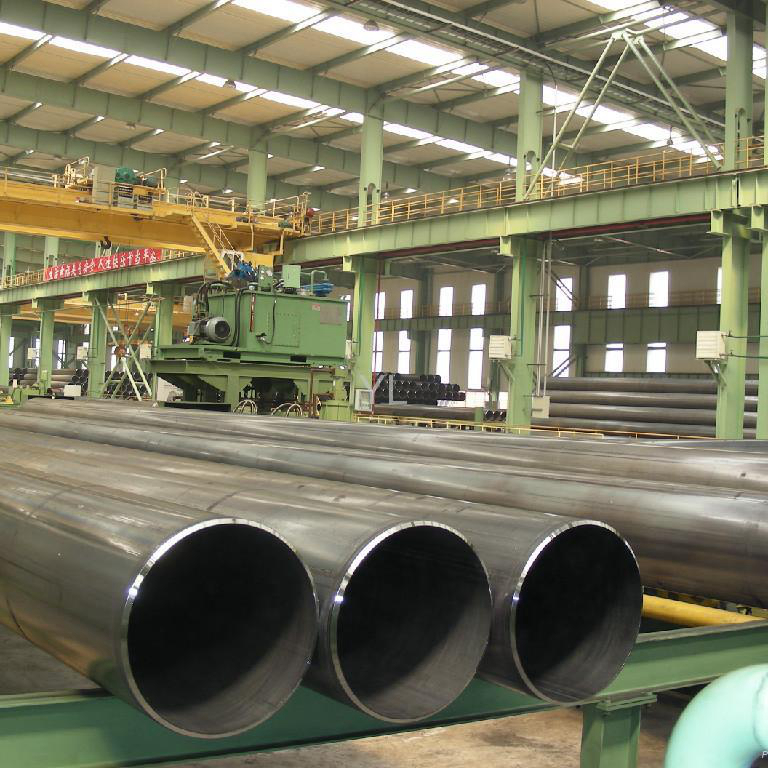Jul . 25, 2024 16:13 Back to list
Quality ERW Steel Pipe Manufacturer Providing Durable Solutions for Industries and Construction Needs
High-Quality ERW Steel Pipe Factory A Commitment to Excellence
In today's rapidly evolving industrial landscape, the significance of high-quality materials cannot be overstated. Among these, high-frequency electric resistance welded (ERW) steel pipes hold a critical position due to their versatility and durability. This article explores the importance of specialized factories dedicated to manufacturing high-quality ERW steel pipes, their production processes, and the industry standards that guide their operations.
Understanding ERW Steel Pipes
ERW steel pipes are made by the process of rolling metal strips and welding them longitudinally. This method ensures a uniform and robust product, making ERW pipes an ideal choice for a variety of applications, including construction, oil and gas transportation, plumbing, and more. Their strength, lightweight nature, and resistance to corrosion make them invaluable in sectors that demand reliable and sustainable materials.
The Role of a Quality-Focused Factory
A high-quality ERW steel pipe factory is not merely a production facility; it embodies a commitment to excellence. These factories invest significantly in advanced technology and skilled personnel to ensure that their products meet the stringent quality requirements of different industries. From the moment the raw materials arrive until the final product rolls off the assembly line, every step in the manufacturing process is meticulously monitored.
Production Processes
The production of ERW steel pipes involves several critical stages, each requiring precision and care. The first step is sourcing high-quality raw materials. Reputable factories procure steel strips from reliable suppliers, ensuring that the materials meet industry standards. Next comes the forming process, where the steel strips are shaped into cylindrical forms under high pressure. Precision is key here, as any deviation can lead to structural weaknesses.
high quality high quality erw steel pipe factory

Following the shaping phase is the welding process, where the edges of the strips are fused together using high-frequency electric resistance. This method produces a strong, seamless bond, vital for the endurance of the pipes. After welding, the pipes undergo various tests, including hydrostatic and non-destructive testing, to ensure they can withstand the pressures they will encounter in real-world applications.
Adherence to Standards
In a high-quality ERW steel pipe factory, adherence to industry standards is paramount. Factories often seek certifications such as ISO 9001, which signifies a commitment to quality management systems. Additionally, compliance with standards set by organizations such as ASTM (American Society for Testing and Materials) ensures that the products meet international quality benchmarks. Regular audits and quality checks play a significant role in maintaining these standards, fostering a culture of continuous improvement.
Innovation and Sustainability
As industries worldwide move towards more sustainable practices, high-quality ERW steel pipe factories are also stepping up. By implementing eco-friendly practices, such as recycling scrap metal and optimizing energy usage during production, these factories not only reduce their environmental footprint but also lower production costs. Innovations in manufacturing techniques, such as the use of advanced welding technology and improved coatings for corrosion resistance, enhance product performance while promoting sustainability.
Conclusion
In conclusion, high-quality ERW steel pipe factories play a crucial role in supplying the construction and manufacturing industries with reliable materials. Through advanced production techniques, rigorous quality control, and a commitment to sustainability, these factories ensure that their products meet the ever-growing demands of the market. As industries continue to evolve, the importance of investing in high-quality ERW steel pipes remains steadfast, paving the way for innovation, durability, and excellence in design and construction.
-
High Quality Mild Steel Pipe Manufacturers in China for Exporting Premium Industrial Solutions
NewsAug.01,2024
-
Exploring Key Characteristics of Wholesale API Steel Pipes for Your Business Needs
NewsAug.01,2024
-
Current Wholesale Prices for ERW Steel Pipes in the Market Right Now
NewsAug.01,2024
-
Exploring the Diverse Applications and Benefits of China Round Steel Pipes in Construction and Industry
NewsAug.01,2024
-
Top Quality API 5L ERW Steel Pipe Manufacturer Offering Reliable and Durable Solutions for Your Needs
NewsAug.01,2024
-
Reliable Supplier of Premium Quality Concrete Pipes for Durable Construction Projects
NewsAug.01,2024